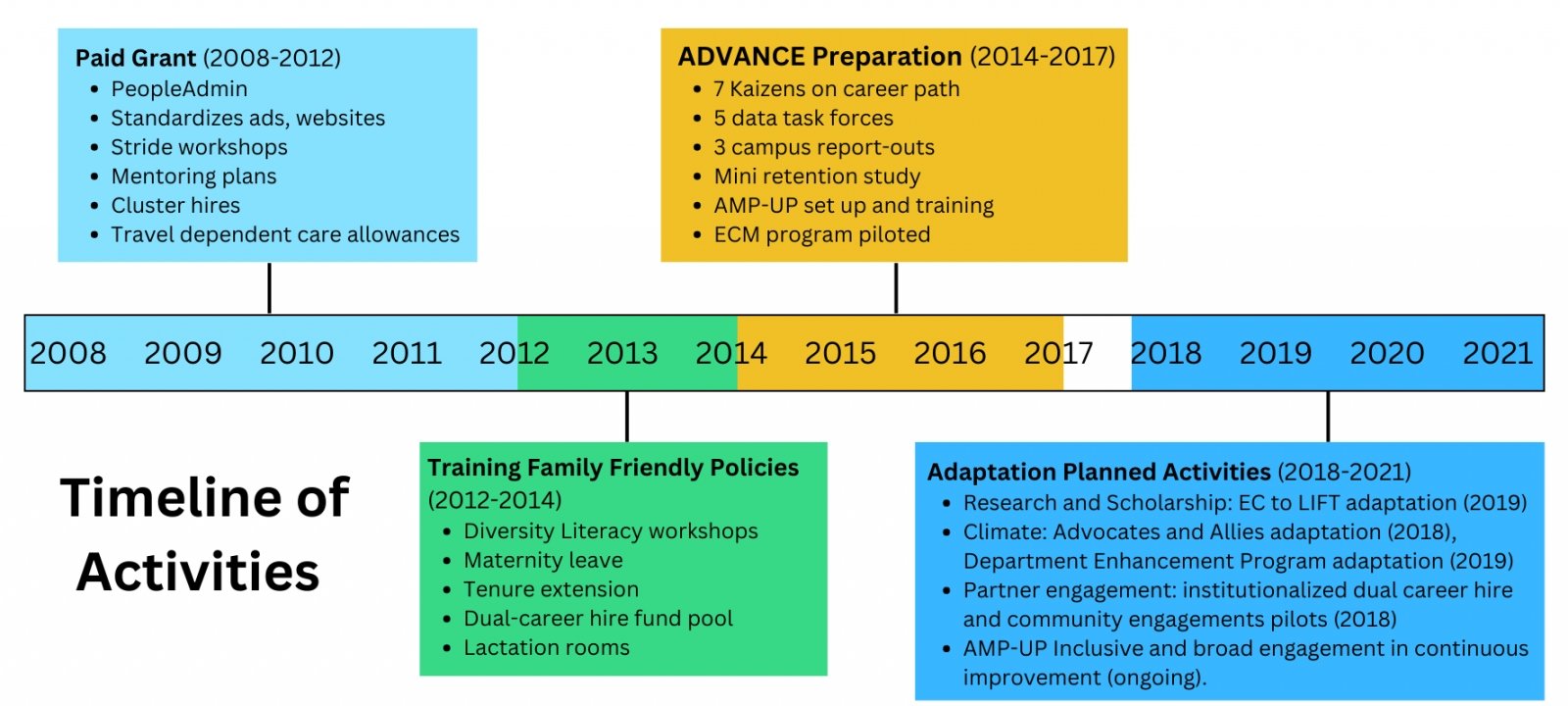
The ADVANCE Midwest Partnership-Joining Forces was a cross-institutional effort to promote retention and career advancement opportunities for underrepresented women and women with family responsibilities working in STEM. Target audiences for the ADVANCE partnership included academic leadership, tenured faculty, and underrepresented individuals. This program was funded by a National Science Foundation's ADVANCE Partnership grant.

In September 2018, The National Science Foundation (NSF) awarded a $1 million ADVANCE Adaptation grant to a team of Michigan Tech faculty: Principle Investigator (PI) Adrienne Minerick (SoT) and Co-PIs Sonia Goltz (SBE), Audrey Mayer (SFRES), Patty Sotirin (HU), and Andrew Storer (SFRES). The grant focused on adapting programs from other ADVANCE institutions to fit the Michigan Tech culture in order to promote faculty success, promotion, and retention.

ADVANCE Matrix Process for University Programs (AMP-UP) was a systematic, data-driven, continuous improvement process instituted to address faculty retention, satisfaction, and career progress. The process was motivated by a proposal submitted for the NSF ADVANCE Institutional Transformation grant; hence, a focus of current efforts is to facilitate female and under-represented STEM faculty success and retention.

The first NSF ADVANCE grant was proposed in January of 2008 and was funded with a start date of September 1, 2008. The original end date was August 31, 2011, and the grant was extended for one year to August 31, 2012. This first grant was aimed at catalyzing change in the gender diversity of the faculty.
The funded initiatives were grounded in innovative and transformative best practices at Michigan Tech and at other university-recipients of ADVANCE grants. These initiatives sought to increase diversity in our applicant pool, create richer and more effective searches, and improve the recruitment and retention of a more diverse faculty who are superior researchers and teachers.
